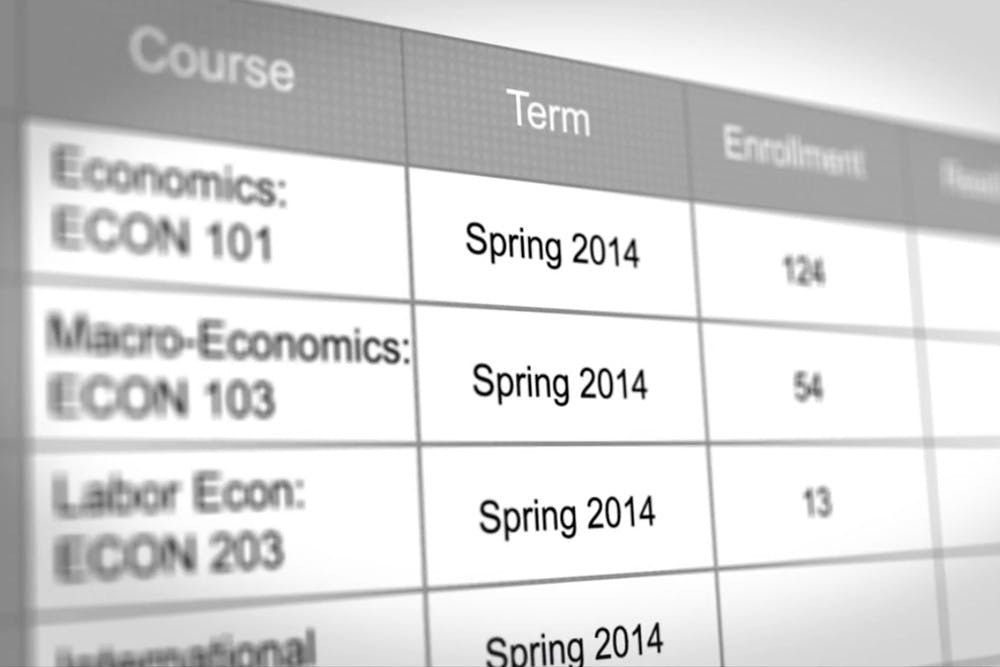In an effort to cut costs and facilitate access to academic materials, ASU has partnered with a company to provide new digital course materials solutions.
SIPX, which was acquired by online database firm ProQuest in April, originated from research at Stanford University but became independent from the university to expand its use to other major institutions including Notre Dame, Pepperdine and now ASU.
Franny Lee, co-founder of SIPX and the general manager of the project within the realm of ProQuest, said SIPX is a solution to improve communication between teachers and student about course materials.
“What we do is look at the different inefficiencies and the different needs that teachers and students have as they are assigning reading or course packs out from the bookstores," she said. "We look at some of the problems they were having with some of those technology solutions."
Lee said SIPX works by recognizing when the library has resources or contracts that are already paid for to avoid redundant payments from students and increase the openness of quality educational materials. SIPX has a subscription cost as well.
One of the most significant claims SIPX makes is its ability to save money. According to its website, customers who use SIPX have saved $3,678,770.
“One of the first things we found was that there were a lot of redundancies happening,” Lee said. “There was a lot of inefficiency across campus with the information of what the library already paid for, so we looked at the bookstore and found very quickly that most of the course packs that students were paying royalties for were already paid for by the library.”
Lee said SIPX saves money by putting these pieces together and streamlining the course materials process.
The implementation of SIPX, which usually takes anywhere from a few weeks to the semester following the partnership, will have a particular impact on library staff.
Jeanne Richardson, the chief officer of collections and scholarly communications at the ASU library, said SIPX will enable faculty and course designers to provide PDFs of course readings in Blackboard while simultaneously managing copyright permissions and rights for these materials.
“We’re really excited about it because it will really help our online students as well,” Richardson said. “So when a faculty member sits down and decides what the course reading will be, he or she will type the title of the book, and in current time, (SIPX) will automatically go through and check this knowledge base that we’re creating.”
She said SIPX has a system in which library materials are open access, and if there is a match between the system and the desires of the professor, the professor is notified that the library already has the course material he or she needs and that it can be added to the course materials list, without having to pay for it again.
If the material is not in the SIPX database or the library, SIPX will negotiate a per-chapter cost with the publisher to avoid forcing students and professors to pay for whole texts that may not be used.
“This information then is embedded in Blackboard,” Richardson said. “And as I understand it, the professor can also upload information.”
SIPX has not yet been implemented at ASU, so the full extent of its use or economizing potential is not yet clear.
Ginny Sylvester, interim head of public services at ASU, said the service will close the gap between what may come up in a course pack and what the library may already own.
“Sometimes it's hard, because of all the different databases we use, and because they’re managed by different companies, to see what we own in full text,” Sylvester said.
Sylvester said there are further problems that faculty and students might face with the current system.
“If a faculty member picks their course readings now, they really don’t know immediately what we own or what we don’t own,” she said. “This will make it easier for them to identify the articles they can easily get and put in Blackboard, and then easier to get a copy of an article we don’t own and put it in Blackboard.”
Correction: Due to an editing error, a previous version of this story included a photo caption that misspelled the name of the photo's source. It has been updated.
Related Links:
Online programs gain popularity among students
Letter: Online classes misrepresented
Reach the reporter at Arren.Kimbel-Sannit@asu.edu or follow @akimbelsannit on Twitter.
Like The State Press on Facebook and follow @statepress on Twitter.




